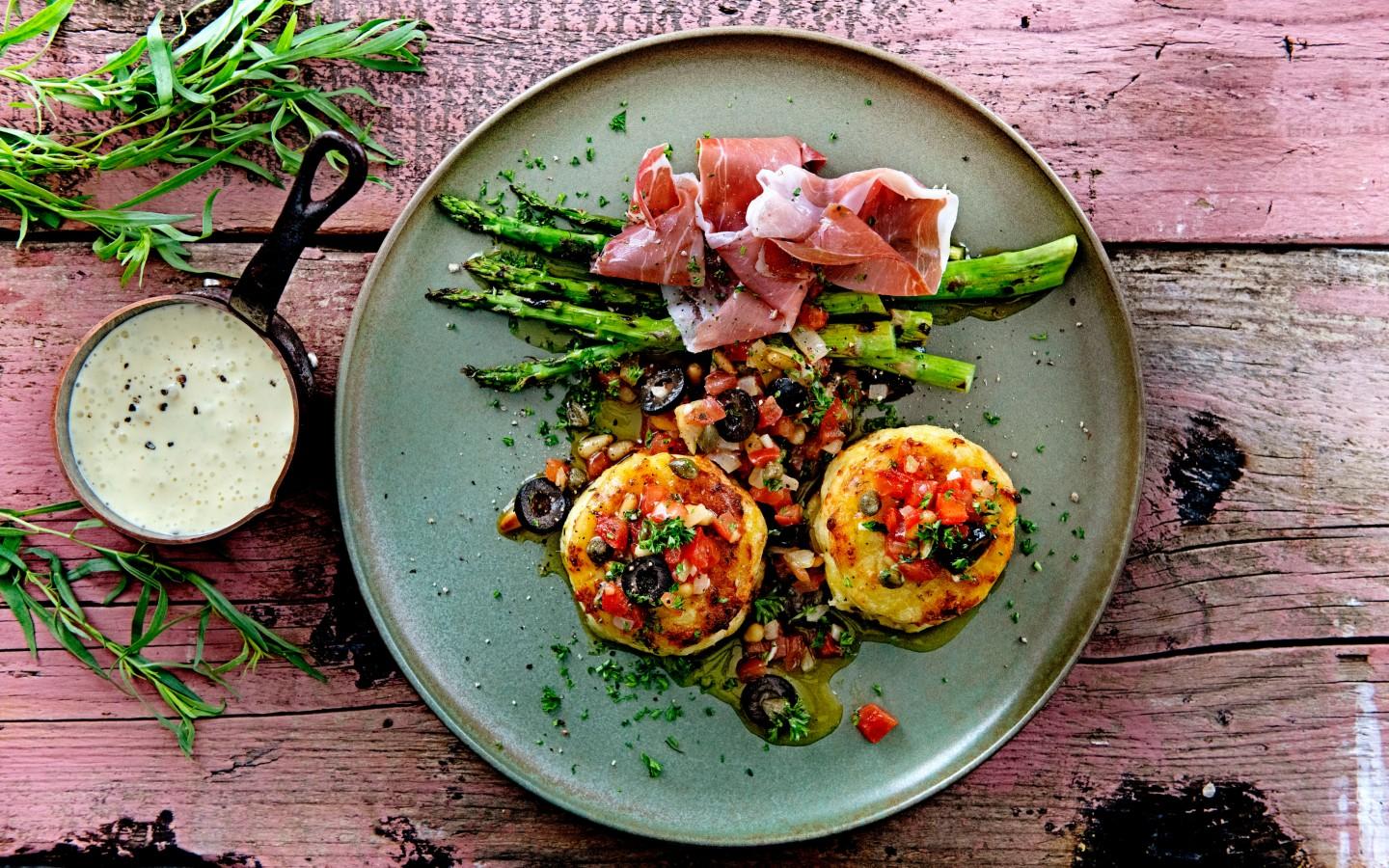
Vegan, Vegetarian or Flex, which is which?
The vegetable trend is getting increasingly "hot"
As noted in the Food Trends 2021 report by the industry portal Finedininglovers, the shackles of veganism as an alternative diet and lifestyle have been lifted. In 2021, "vegan" ceased to be a synonym to "tasteless". Plant-based food is tasty, satisfying, and desirable.[1] The popularity and availability of vegan alternatives to burgers, steaks, and chicken is growing. Most of the UK's best restaurants and new eateries offer vegan options on the menu, and UK supermarkets sell their own vegan products.
The trend is similar in Europe, the United States, Australia, and Asia. When it comes to Europe, the most vegetarian-friendly cities are London, Berlin, and Warsaw. The trio is considered a global model when it comes to the availability of restaurants, as well as vegetarian and vegan products.[2] In the United States, until 2020, the most vegan-friendly cities were Portland and Los Angeles. After the pandemic, New York and other major American cities are taking a bolder approach to the plant trend.

Vegans come out in the 20th century
The cradle of modern veganism is Great Britain, where the Vegan Society was founded in 1944. It brought together the most restrictive vegetarians who exchanged recipes and tips for survival in a time when no one even dreamed about a seitan burger or vegan black pudding.
As the Society points out: "Veganism is a philosophy and way of living which seeks to exclude - as far as is possible and practicable - all forms of exploitation of, and cruelty to, animals for food, clothing or any other purpose; and by extension, promotes the development and use of animal-free alternatives for the benefit of humans, animals and the environment. In dietary terms it denotes the practice of dispensing with all products derived wholly or partly from animals."[3]
Plant based diet
The number of vegetarians is growing each year. In Argentina, approximately 12 percent of the population (i.e. as many as 5.4 million people) have chosen a meat-free diet[5]. In Brazil, more than 14 percent of the population went vegetarian even before the pandemic.[6] In India, the cradle of vegetarianism, 20 to 33% of people do not eat meat, although some statistics report up to 40% (the record numbers are mainly for religious reasons).[7]
According to the Nielsen group[8], as much as 39 percent of non-vegan Americans are actively trying to include plant-based foods in their diets. According to the industry portal plantproteins.co[9] in the United States in 2021 as much as 6 percent of consumers identified themselves as vegans, although in 2014 it was only 1 percent. The large increase in interest in plant products has not escaped the business. This is why the vegan market is booming; even global fast food chains known for their meat-based offer, such as McDonald's, are beginning to adapt to plant-based options and offer the 'Veggie Burger'[10] or 'McPlant'[11].

Veggie, vegan or flex: which is which?
Nowadays, if you asked around what vegetarianism is, the answer would probably be: "vegetarians do not eat meat". And this is only partly true, because there are several varieties of vegetarianism.
Its most popular variation is lacto-ovo-vegetarianism, i.e. a meat-free diet, which allows certain animal products, such as dairy or honey. Apart from meat, lacto-vegetarians refrain from eating eggs, but they do not mind milk and dairy products. Of all animal products, ovo-vegetarians eat only eggs.[12] [13].
Vegans are an increasingly dominant group of vegetarians. They reject all animal-derived foods. Smoked salmon is replaced with smoked carrot, minced meat with falafel or seitan (a gluten-based substitute of meat), scrambled eggs with tofu, meat pate with lentil pate, pork lard with bean lard, cow's milk with almond, oat or nut milk, and cow, goat or sheep cheeses - with their vegan, vegetable fat-based substitutes.
Among the less popular or, as some say, more eccentric branches of vegetarianism is also raw foodism, or rawism (only fresh plant products, no cooking, not even brewing coffee or tea); fruitarianism (only raw or dried fruit and vegetables, acquired in such a way as not to "kill the plant" on which they grow; all agricultural treatments are prohibited); liquidarianism (a diet based only on juices) and sproutarianism (eating seeds of cereals, vegetables, and fruits).[14] But there are also those who limit, and not altogether reject meat consumption in daily meals: flexitarians.
"Flexes" can say yes to Sunday roast
Recently, flexitarians have been the talk of the town. The term was first used in 1992. Flexitarianism is a flexible alternative to vegetarianism, listed in the USA News diet ranking as the second best diet for life, right after the Mediterranean diet.[15]
Flexitarianism is a compromise diet that does not exclude any products and allows eating meat; however, the general emphasis is on "vege". Meat or dairy products can be consumed several times a year (ideal), or even once a week.
In the daily diet, flexitarians focus mainly on plant-based foods, with occasional dairy, eggs, meat and fish in small amounts. They make sure that meat, fish, and animal products are of good quality, preferably organic, from certified sustainable production or fishing.

Quitting meat grows popular in the pandemic
All of the above varieties of plant-based diets share a common idea of respect and love for animals, as well as environmental protection and health. Vegetarianism and veganism became particularly appealing all over the world after March 2020, when the first wave of the pandemic hit.
According to the International Food Information Council's "2020 Food & Health Survey"[16], during the pandemic, as much as 28 percent of the global population consumed more protein from plant sources. Taking into account the growing trends in the combat against industrial breeding and overproduction of meat, as well as the efforts to reduce global hunger, it can be expected that the popularity of vegetarianism, veganism, and flexitarianism will increase.
[1] https://www.finedininglovers.com/sites/g/files/xknfdk626/files/2020-12/Finedininglovers_2021_Food_Trends.pdf
[2] https://www.happycow.net/vegtopics/travel/top-vegan-friendly-cities
[3] https://www.vegansociety.com/go-vegan/definition-veganism
[4] https://www.tokfm.pl/Tokfm/56,102433,9566125,nasze-ciala-sa-grobami-zwierzat-slynni-wegetarianie.html?bo=1
[5] https://elmilenio.info/2020/11/05/cuantos-veganos-y-vegetarianos-hay-en-argentina/
[6] https://www.svb.org.br/2469-pesquisa-do-ibope-aponta-crescimento-historico-no-numero-de-vegetarianos-no-brasil
[8] https://nielseniq.com/global/en/insights/
[9] https://www.plantproteins.co/vegan-plant-based-diet-statistics/#population
[10] https://mcdonalds.pl/nasze-menu/burgery-i-wrapy/veggie-burger/
[11] https://thebeet.com/mcdonalds-vegan-mcplant-burger-is-finally-here-where-to-get-it/
[12] https://kukbuk.pl/artykuly/marta-dymek-polska-tradycja-w-wersji-wege/
[13] https://www.maczfit.pl/blog/dieta-wegetarianska-charakterystyka-zasady-jadlospis/
[14] https://pl.wikipedia.org/wiki/Wegetarianizm
[15] https://health.clevelandclinic.org/what-is-the-flexitarian-diet/
[16] https://www.foodinsight.org/wp-content/uploads/2020/06/2020-Food-and-Health-Survey-.pdf
Learn more from our experts

The philosophy of building a seasonal menu
A seasonal menu offers a number of advantages that you as a food professional should know about. We have found some great examples and give you some tips on how to go about it
View
Which Foodservice trends will determine the future of the industry?
Some trends fade as quickly as they appear. In this article, we will look at the gastronomy trends that can definitely change the face of foodservice.
View
Seasonal menu: how to tempt your guests and boost the restaurant turnover all year round
The seasonal food and drink menu can increase the restaurant sales by 10-15%. How do you create a profitable seasonal menu that your guests adore?
View